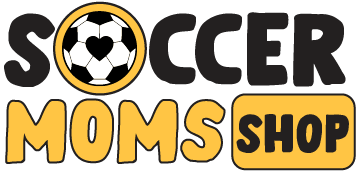One of the hardest things to deal with as an athlete – youth to pro – is not getting playing time. Every athlete wants to contribute, wants to feel like they are a part of the accomplishments of the team, and just simply wants to play because it’s more fun than not playing. But not everyone can play all the time and that is one of the realities that our kids learn in sports.
What Not To Do
So, what can we say as parents, and as importantly what do we NOT want to say that can actually end up making the situation worse even thought we are trying to make it better?
First, lets start with what NOT to do. This is the hardest part. We should not try to “save” them from the discomfort/pain of not playing, by telling them that the coach is stupid, unfair, doesn’t know what they’re doing, playing favorites, etc.
Why not? Maybe one of these is actually true? Regardless of whether true or not it unintentionally sends two messages to the young athlete. The first message is that the real world won’t have these things as well – the truth is that it will. The second message that it sends is that they need you to save them from pain. We don’t. It’s our urge as parents, but the reality is that we don’t need to. They are always more resilient than we actually know and they will survive this.
If you like this article, Follow us on FACEBOOK and INSTAGRAM and PINTEREST!
A Better Approach
A better approach is to acknowledge the pain, let them know that you understand it, and then remind them that they’ll be fine. It may take a little while, but they will survive it – we always do. Teaching them to believe in their inherent strength is a much better lesson
The second step – after they express their anger and disappointment – is to ask one simple question.
What do you have some control over now?”
Even if not playing in games the player can continue to compete like crazy in practice, give their attention to improving, and to continuing to do the right things as a teammate. There will still be difficult moments, but at least they are approaching from a proactive place of strength – “I still control these things”, “I can still improve”, and “this is a moment in time and not my entire career”.
Your Child’s Identity
The last thing that I’ll recommend for this topic is to understand that their sport is not them – it is not their identity. Good or bad performance does not dictate your value. How you respond, how you treat others, and how you value the behaviors you exhibit is your identity and your value. Sport success or challenges are not who you are they are simply something that you do.
I’ll finish this up by framing it the best way I know how which is through an old fable I’ve repeated many times -“Don’t try to remove the obstacle from the path, the obstacle is the path”. Struggle and pain are part of a successful life, and so learning how to NOT fear them is essential. Don’t prevent them from experiencing these valuable lessons.
Source: https://soccerparentresourcecenter.com
If you like this article, Follow us on FACEBOOK and INSTAGRAM and PINTEREST!

